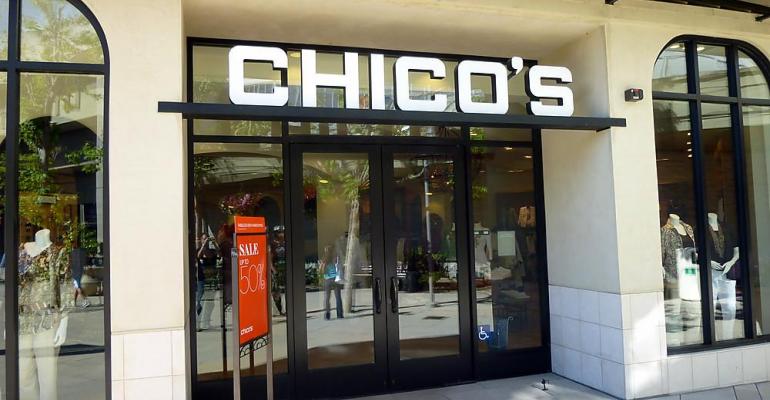Activist investor takeovers usually turn out differently than the recent scuffle between Barington Capital Group and Chico’s FAS.
The retailer, which owns the Chico’s, Soma, and Black House | White Market chains, has already spent the better part of the first half of 2016 laying out plans to improve the company’s performance and deliver more value to shareholders. Meanwhile, Barington Capital Group, which owns a 1.6 percent share of the company, launched a bid to gain two board seats in May. At the time, Barington claimed in a letter that Chico’s share price was down 77 percent from its all-time high in 2006. The company also claimed that the retailer needed to significantly reduce its corporate overhead and cut down on expenses, including advertising.
Barington executives said that they wanted the company to improve the execution and corporate strategy at each of its business lines; and improve its corporate governance and executive compensation practices.
In a skirmish of statements that ensued over the following weeks, Chico’s FAS informed the company’s shareholders of plans that it was already making to control costs and improve management. For instance, in April Chico’s said it de-centralized its digital commerce and marketing functions so that they would serve the brands more closely. Instead of one corporate-level executive handling the two responsibilities, the brand presidents were to assume those responsibilities. Meanwhile, Barington took credit for some of the decisions, including that one.
Although the New York-based investment firm detailed how it thought Chico’s, which operates 1,517 stores, should cut costs, much less was said about how the company should improve its core operations. Industry analysts note that although Chico’s successfully resisted a proxy challenge this time around, the company will have to have a solid plan to improve its core operations if it wants to remain autonomous and maintain success.
“We’re in round one, but nothing is over,” says Howard Davidowitz, chairman of Davidowitz & Associates, Inc., a national retail consulting and investment banking firm headquartered in New York. “If things start improving, everyone will be happy, including Barington.”
How to neutralize an activist
Chico’s FAS set out to improve its performance when it appointed Shelly Broader as CEO in October 2015. It also made a number of other senior executive appointments, including Susan Lanigan as executive vice president and general counsel.
The retailer recommended its own board appointments, including Bonnie Brooks, vice chairman of Hudson's Bay Company. Bill Simon, the former president and CEO of Wal-Mart U.S., was also nominated to the board. Meanwhile, in a move that might boost shareholder confidence, the company raised its dividends to $0.08 per share, for a Treasury-beating yield of about 2.67 percent.
Those decisions certainly leave the impression that Chico’s is striving to make positive changes at the company. In February 2015 Chico’s announced plans to close 120 poorly performing stores by 2017. It also sold its Boston Proper direct-to-consumer business.
Yet the company still faced setbacks. Chico’s first quarter 2016 results were not entirely encouraging. Same-store sales were down 4.2 percent across the company, compared with the same period last year.
Davidowitz notes that Barington Capital’s ownership stake was just 1.6 percent. Had the investor owned a 10.0 percent share of the retailer, it might have had much more leverage to convince other shareholders to support its cause. But the small ownership left room for Chico’s to pursue a corrective course that it feels is appropriate.
Chico’s has another important asset—cash. The company noted in its first quarter results that it had $56.5 million in cash and equivalents. Some of it was held over from years of successfully selling fashions to mature women, Davidowitz says, therefore the company is not at financial risk.
“What we’ll have to see is ‘Are these changes getting results?’” Davidowitz says. “They have closed the bad stores, which should result in better results. If it doesn’t, we’ll go into round two.”
For now, Chico’s cash cushion has given the retailer time to develop a better long-term strategy than mere cost-cutting measures, he notes. But the company will need to find a way to appeal to its constituency again and add new customers.
“They have time, lots of time,” Davidowitz says. “The question is ‘What do they do?”

